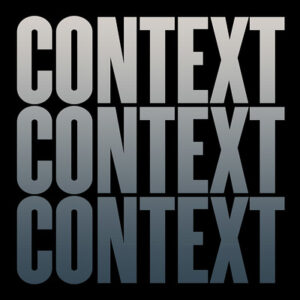“As also in all his epistles, speaking in them of these things; in which are some things hard to be understood, which they that are unlearned and unstable wrest, as they do also the other scriptures, unto their own destruction” (2 Peter 3:16 KJV).
This reference to “wresting” or “twisting” the Scriptures contains an illustrative word-picture that sheds light on the efforts of those who intentionally distort Biblical truth. In the original language of this passage, this word conveys the following idea: “to distort the limbs on a rack… to wrench, distort, pervert.” (1) So much like a sinister henchman who wrenched the limbs of a prisoner on a medieval torture rack, there are some who attempt to twist the Scriptures in a similar manner.
For his part, Paul the Apostle was clearly familiar with such efforts. In fact, Paul likely faced numerous attempts to distort his teachings from those who sought to discredit him. The Biblical books of Romans and Galatians appear to document several of those attempts…
“Why not say, then, ‘Let us do evil so that good may come’? Some people, indeed, have insulted me by accusing me of saying this very thing! They will be condemned, as they should be” (Romans 3:8 GNT).
“Well then, shall we keep on sinning so that God can keep on showing us more and more kindness and forgiveness?” (Romans 6:1 TLB).
“What does all this mean? Does it mean we are free to sin, because we are ruled by God’s wonderful kindness and not by the Law? Certainly not!” (Romans 6:15 CEV).
“But if, while we seek to be justified by Christ, we ourselves also are found sinners, is Christ therefore a minister of sin? Certainly not!” (Galatians 2:17).
Paul addressed those efforts with reasoned responses in each instance (see Romans 3:7-26, Romans 6:1-11, Romans 6:15-23, and Galatians 2:18-21).It seems that Peter was similarly aware of those who adopted this approach, and that apparently led him to issue this cautionary message. This has brought one commentary to the following conclusion…
“The false teachers intentionally misused Paul’s writings by distorting them to condone lawlessness. No doubt this made the teachers popular, because people always like to have their favorite sins justified, but the net effect was to totally destroy Paul’s message. Paul may have been thinking of teachers like these when he wrote in Rom_6:15: ‘Since God’s grace has set us free from the law, does that mean we can go on sinning? Of course not!’ …the better we know Jesus, the less attractive false teaching will be.” (2)
(1) G4761 strebloo. Mounce Concise Greek-English Dictionary of the New Testament. https://www.billmounce.com/greek-dictionary/strebloo
(2) Life Application Study Bible [2 Peter 3:15-18] Copyright © 1988, 1989, 1991, 1993, 1996, 2004 by Tyndale House Publishers Inc., all rights reserved.


 This also reminds us that context is important whenever we encounter those who seek to use a Biblical text to support their views. The word “context” refers to “the part of a text or statement that surrounds a particular word or passage and determines its meaning.” (2) In other words, the chapters and verses that surround a Biblical text help determine the meaning of that text. When verses are quoted outside their context, it is sometimes possible to make the Bible say some very unbiblical things.
This also reminds us that context is important whenever we encounter those who seek to use a Biblical text to support their views. The word “context” refers to “the part of a text or statement that surrounds a particular word or passage and determines its meaning.” (2) In other words, the chapters and verses that surround a Biblical text help determine the meaning of that text. When verses are quoted outside their context, it is sometimes possible to make the Bible say some very unbiblical things. By highlighting some of the challenging aspects of Paul the Apostle’s Biblical letters, Peter directs our attention to a practical application from this passage. For example, some may justify their reluctance to read the Bible by claiming that it is too difficult to understand. But today’s age of technological advancement has made it increasingly difficult to rationalize that argument.
By highlighting some of the challenging aspects of Paul the Apostle’s Biblical letters, Peter directs our attention to a practical application from this passage. For example, some may justify their reluctance to read the Bible by claiming that it is too difficult to understand. But today’s age of technological advancement has made it increasingly difficult to rationalize that argument. So, unlike the unscrupulous advertiser who markets a “new” product that is little more than an old product dressed up in a different package, the new heavens and new earth will be pristine and unspoiled. If we were to employ some technical jargon to describe this future event, we might say that God will not simply “power off” the current universe and “reboot” it. Instead, He will completely rewrite its operating system.
So, unlike the unscrupulous advertiser who markets a “new” product that is little more than an old product dressed up in a different package, the new heavens and new earth will be pristine and unspoiled. If we were to employ some technical jargon to describe this future event, we might say that God will not simply “power off” the current universe and “reboot” it. Instead, He will completely rewrite its operating system. We can also view this reference to “hastening” from a different perspective. As we’ve already seen, the word “hasten” is used to describe an attempt to expedite an action or activity. In light of this, our text from 2 Peter 3:12 underscores the need to avoid a passive mindset in anticipation of that day. Instead, we should actively employ the talents, skills, abilities, gifts, and opportunities that God has graciously given us for use in His service today.
We can also view this reference to “hastening” from a different perspective. As we’ve already seen, the word “hasten” is used to describe an attempt to expedite an action or activity. In light of this, our text from 2 Peter 3:12 underscores the need to avoid a passive mindset in anticipation of that day. Instead, we should actively employ the talents, skills, abilities, gifts, and opportunities that God has graciously given us for use in His service today.